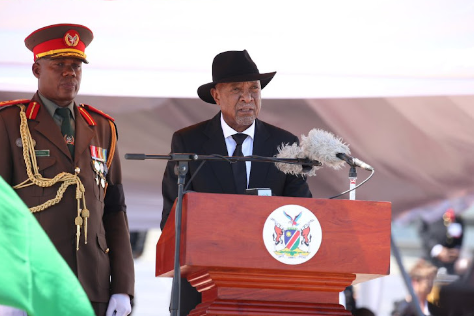Michelle Nehoya from Namibia has spent nearly $500 (£390) on a visa application to visit Canada, but after more than two years, she has yet to receive it. The 38-year-old, who resides in Windhoek, Namibia’s capital, is eager to visit her aunt and cousins in Quebec, whom she hasn’t seen in almost a decade.
The application process has required her to complete numerous forms, provide six months of bank statements, an invitation letter, and a detailed travel history. Additionally, she had to travel to South Africa to submit her biometric data, including fingerprints and a photo.
Nehoya’s experience is typical for many Africans seeking to travel to Western countries. In 2022, seven out of the top ten countries with the highest visa rejection rates in the Schengen area were African, according to consultancy Henley and Partners. Nehoya describes the process as “lengthy and frustrating,” noting she has not been given a reason for the delay.
In contrast, if her family in Quebec were to visit Namibia, they would face no such challenges. Currently, Canadian citizens can enter Namibia without a visa. However, starting next April, Canadian nationals, along with those from Germany, the US, the UK, and 29 other countries, will need a visa to enter Namibia. This change will affect all “non-reciprocating countries,” meaning those that require Namibian passport holders to obtain a visa.
Namibia’s immigration ministry explained in May that the new visa requirement aims to address the lack of reciprocity and ensure fairness in diplomatic relations. Despite this, visitors from these countries will be able to purchase a 90-day visa for $90 upon arrival in Namibia, whereas African passport holders must secure their visas in advance.
The British High Commissioner to Namibia, Charles Moore, said he respected the right of Namibia to impose new regulations.
“[The UK] unfortunately imposed a visa regime on Namibia last year due to the number of asylum seekers we were receiving. That was impacting on our relationship with Namibia,” he said.
A statement from the UK government further explained there had been a sustained and significant increase in the number of asylum applications from Namibians at the UK border since 2016.
“This constitutes an abuse of the provision to visit the UK for a limited period as non-visa nationals,” it said.
For Ms Nehoya, Namibia’s visa announcement is long overdue: “I think it is fair. It feels like Namibia is standing up for itself.”


